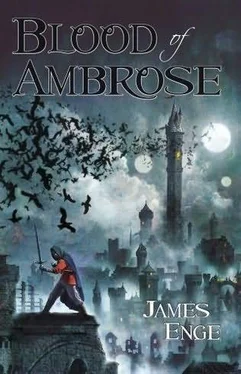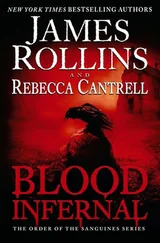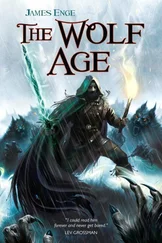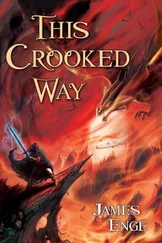"God Avenger, make him stop!"
"Shut up, Jordel," Aloe said curtly. "Morlock, if these other models are less vulnerable to attack …Are they?"
"Yes."
"Then why do you assume that the Protector's Shadow chose the most vulnerable model?"
"Bad tactics," said Ambrosia curtly, and Wyrth, with a remembering look, smiled briefly.
"I don't assume he did," Morlock said flatly. "It's what he must have done. There may be practical considerations I am unaware of-this isn't my sort of magic. It may be that sharing awareness among several physical forms would require sharing of identity. The Shadow would not eat these beings; together they would become a true group mind. This would not appeal to him."
"No," the King said firmly. "It wouldn't."
"Or perhaps he simply made a tactical error in his first improvised, er, meal, and has stuck to the model ever since. It doesn't matter. This is the method he has chosen."
"You keep saying that," Aloe said. "But-"
"He defends his body," the King said distantly.
"He-what do you mean?" Aloe asked, focusing on Lathmar.
The King shifted uneasily in his seat. He looked at Morlock, but Morlock simply gestured for him to continue.
"He grows these hedges of thorn around the tower. He hides the door. The only window is hundreds of feet above the ground. He blocks the door to his workroom like a tomb." The King waved his hands. "Don't you see?"
"Even more," Morlock continued. "He gutted his body of its vital organs, sealing them away to protect his body's life. If it were not vulnerable, if it were not important to defend it, he would not hedge it around with these elaborate defenses. He would not suffer the inconvenience of a rotting body. It is his weak point. We must strike it."
"Or," Jordel said triumphantly (he had been waiting centuries to say it), "he wants it to seem that way. Isn't that possible? That the whole tower setup is an elaborate feint to draw an opponent (you, Morlock, or Ambrosia) to death or captivity?"
Morlock nodded slowly. "I considered the possibility. I broached it to the King. He thinks it unlikely. I trust his intuition."
"He was there, you know," Wyrth pointed out.
"Yes, but, begging Your Majesty's pardon and all that," Jordel said, "suppose he's wrong?"
"Then you fight on without me. Next most likely is that there is a small core group of mind-bodies who consume together the infected minds and share control of the subject bodies. The task would be to identify and kill a significant number of these."
"`A significant number …'?" Aloe wondered.
Morlock shrugged. "More than one. Less than the total number of mindbodies in the core group."
"And if it is the third model?" Baran asked. "Total interconsciousness, or whatever you said?"
"You'd have to kill them all."
"Easy for you to say," Jordel said. "You'll be dead yourself."
Morlock shrugged. "That's not how it is. If I fail, one or more of you should set out to do what I tried to do."
"Suppose we're all dead by then?" Jordel wondered.
Morlock gestured at Baran.
"Then it's up to us in the Wardlands, you mean," Baran said.
"Yes. You should contact Merlin as well. He's no friend to the Graith or the Second Empire, but I suspect that the Protector's Shadow will interfere with his plans, and he could be a useful ally. He has made a special study of necromancy."
"His plans," said Jordel musingly. "What are his plans, do you suppose?"
"He always has some plot or other afoot," Ambrosia said dismissively. "They never come to anything, always being somewhat overcomplicated. But it's nice to know one's father has something to amuse himself with in his extreme old age."
"Eh," said Jordel. His father, of whom he had been very fond, had died young.
"I take it," Ambrosia resumed, in a more official tone, "that the sentiment of the council is unanimous: Baran shall go to warn our neighbors in the Wardlands of the present danger, while Morlock shall go to the Old City to combat the Protector's Shadow. The rest of us shall man, woman, and dwarf the barricades here until some new strategy presents itself."
Nods around the table.
"I'm pleased to adjourn this last meeting of the Regency Council on a note of ringing unanimity," she said with a crooked smile. "We all have work to do, though the hour is late. Still, I ask you to wait and witness."
Morlock, who alone had heard this ritual formula before, looked up with interest. Ambrosia had stood and was walking, with a wooden box in her hands, over to where the King had seated himself, rather informally, farther down the council table. "Your Majesty," she said as she walked, "I had hoped to make this gesture with the high ceremony it deserves. But it may be that we will not all meet again. So" …She opened the box, took out what was in it, and cast it aside. In her hands she held an iron circlet with no gem. Lathmar twisted around in his chair to look at it.
"This is the iron crown of Vraid," she said. "With it I crowned your ancestor, my beloved husband, Uthar the First, Emperor of Ontil on the field of battle. In that dark hour without hope we won through to victory. Will you accept now the heritage of your ancestors and be our sign of hope in this dark hour?"
Lathmar squawked, "You want to crown me Emperor, now, before breakfast?"
"Certainly. Unless you would rather someone else do it." She didn't look at Morlock.
"No!" the King said instantly, to Morlock's relief. "No, Grandmother: you do it." He stood, kicking his chair to the floor, and kneeled before her.
She placed the iron circlet among his disordered brown locks, saying, "I crown you Lathmar the Seventh, Emperor of Ontil."
Then he rose and she kneeled, taking off her chain of office and handing it to him. "Your commands, my liege?" she said softly.
He gripped the chain like a lifeline, but his voice was steady as he spoke. "I affirm the acts of my late regent, my well-beloved ancestress Lady Ambrosia Viviana. Let's leave the rest of the ceremonies for another time; we have a war to fight. And, frankly, I want breakfast."
"Hail Lathmar the Seventh, called the Wise!" cried Jordel enthusiastically. "Breakfast in droves, by all means. Maybe we should get an emperor in the Wardlands."
Baran pushed his chair over for this blasphemy, and thus ended the imperial coronation of Lathmar VII.
"Morlock," Aloe said in the Crooked Man's ear as the others were standing around the table talking. "You've other good-byes to say, so I won't keep you. But come back to me, Morlock: I say it to you like some stupid fisherman's stupid wife. Come back to me."
Morlock stood, took her by the elbow, and walked her out in the hall. "The time is come for an understanding between us," he said firmly.
She looked at him with her golden eyes and waited.
"I am no longer your husband," he said harshly. "You are not my wife. I am an exile, and you are a member of the Graith of Guardians. You could be exiled simply for saying what you have said to me. Don't throw away everything you are because of something which is nothing to you."
"Do you really believe you are nothing to me?" she said, surprised.
"You would wander with me, from place to place, without a home, because I can never come to the place that is my home?"
She laughed, dismissing this fantasy with a wave of her hand. "I can see the future better than that, Morlock."
"Prophesy for me."
"You will be in the future what Ambrosia has been in the past: the true ruler of this empire. It took a long time, but now you have a place to call your own. You cast a long shadow-"
"An ill-chosen metaphor indeed," he hissed.
"Choose your own metaphor, beloved. The job is yours to do. I've never known you to shirk a job that was yours. I think I understand you now, at last, and I am willing to be a partner in your destiny, wherever it leads."
Читать дальше












